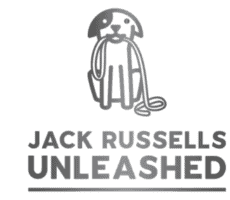Feeding your Jack Russell Terrier a healthy and balanced diet will ensure they receive all the essential vitamins and minerals needed for optimal health.
When Jack Russell Terriers consume the wrong types of food, they are at risk of acute or chronic illnesses, some potentially life threatening. Aside from the obvious culprits like fast foods or artificially flavoured or coloured foods, it is important to avoid chocolate, grapes and raisins, macadamia nuts, almonds, walnuts, garlic and onions, hops, yeast, avocado, rhubarb leaves, corn on a cob, cooked bones, xylitol, alcohol, caffeine, and blue cheese.
1. Chocolate
Chocolate is toxic to Jack Russell Terriers and can cause significant illness if ingested. It contains a chemical compound called theobromine, as well as caffeine. Theobromine acts as a diuretic, heart stimulant, blood vessel dilator, and a smooth muscle relaxant and while humans metabolize theobromine easily, dogs do not.
The darker the chocolate, the more toxic it is to Jack Russell Terriers. Dark chocolate contains 130 to 450 mg of theobromine per ounce whereas milk chocolate only contains about 44 to 58 mg per ounce. White chocolate only contains 0.25 mg of theobromine per ounce of chocolate and rarely poses a threat.
A Jack Russell Terrier weighing 50 pounds would only need to eat 1 square (1 ounce) of dark chocolate, or 9 squares (9 ounces) of milk chocolate, for signs of theobromine poisoning to occur. Ingesting small amounts of milk chocolate is usually not harmful.
Signs of chocolate toxicity usually appear within 6 to 12 hours and most commonly include vomiting, diarrhea, increased thirst, panting or restlessness, excessive urination, and racing heart rate. In severe cases of poisoning, symptoms can include muscle tremors, seizures, and heart failure.
It is important to contact your veterinarian as soon as you suspect that your Jack Russell Terrier has ingested chocolate. Prompt treatment increases your dog’s chance of survival.
2. Grapes and Raisins
Grapes and raisins are highly toxic to Jack Russell Terriers. It is unknown why this fruit is toxic and to date, no specific toxic compound has been identified.
Some Jack Russell Terriers appear to tolerate small amounts of grapes or raisins without concern whereas others show signs of toxicity after ingesting the same amount. There is no way to predict how your Jack Russell Terrier will react and best to err on the side of caution. According to The American Kennel Club even one grape/raisin can lead to acute kidney failure so any exposure should be treated seriously.
Vomiting is the most common initial sign of grape or raisin toxicity and is generally seen withing the first 24 hours following ingestion. Lack of appetite, lethargy, and possibly diarrhea occur within the next 12 to 24 hours. More severe symptoms occur after the 24 hour mark and these include lack of appetite, vomiting, uremic (ammonia odour) breath, diarrhea, abdominal pain, excessive thirst, and excessive urination.
If your Jack Russell Terrier has ingested grapes or raisins, it is important to contact your veterinarian as prompt treatment is absolutely critical.
3. Macadamia Nuts
Like grapes and raisins, researchers have been unable to identified what causes macadamia nuts to be toxic to Jack Russell Terriers. What we do know is that eating as little as 1/10 of an ounce per 2 pounds of body weight of these nuts can cause severe symptoms.
Symptoms of toxicity usually appear within 12 hours of ingestion. These most commonly include weakness, especially in the hind legs, reluctance to get up/stand/walk, trembling, lethargy, vomiting and fever. Cases range from being mild and showing few symptoms to being much more serious and involving constant shaking, high fever, and an inability to walk.
4. Almonds
Almonds aren’t toxic to Jack Russell Terriers, however, they can still cause significant health problems and should be avoided.
These include:
Obstruction Hazard: Jack Russell Terriers tend to swallow foods like almonds whole. This can cause obstructions of the oesophagus, stomach, or even the windpipe if aspirated.
Gastro-intestinal Upset: The high fat content in almonds can cause pancreatitis in some Jack Russell Terriers. Warning signs include vomiting, diarrhea, loss of appetite, and lethargy.
Water Retention: Almonds that are heavily salted can cause increased water retention in Jack Russell Terriers. This is particularly dangerous in dogs with heart disease.
These issues can be life threatening and should be properly diagnosed and treated by your veterinarian.
5. Walnuts
Walnuts themselves are not toxic to Jack Russell Terriers but they should never be fed to your terrier on purpose as they often have toxins like mould and fungi growing on them. In addition to this, their high fat content can cause digestive issues in your Jack Russell Terrier.
Due to their high moisture content, walnuts are susceptible to developing mould and fungi that can be highly toxic to Jack Russell Terriers. These moulds and fungi can produce tremorgenic mycotoxins, which can be carcinogenic or cause tremors, seizures, and other neurological complications in Jack Russell Terriers. If these symptoms occur, you should contact your veterinarian immediately because they can be fatal if left untreated.
The fat content in these nuts can upset your Jack Russell Terrier’s stomach and cause diarrhea and vomiting and in serious causes, potentially develop into health conditions like gastroenteritis or pancreatitis. Furthermore, walnuts present a potential choking hazard and could cause intestinal blockages.
6. Garlic and Onions
Garlic and onions, as well as other members of the allium family like chives and leeks, contain thiosulfate which is toxic to Jack Russell Terriers but not to humans.
Thiosulfate causes oxidative damage to the red blood cells (making them more likely to rupture) leading to hemolytic anemia. Studies have found it takes approximately half an ounce of garlic per pound to cause damage to a dog’s blood. This translates to around 5 cloves of garlic, so your dog would have to eat a lot to cause illness. Consumption of smaller doses spread out over a few days could also cause problems.
Symptoms of hemolytic anemia include gastrointestinal upset, weakness, elevated heart rate, increased respiratory rate and effort, panting, pale gums, or red-colored urine.
While garlic and onion poisoning are rarely fatal in Jack Russell Terriers, it is best to seek supportive care from your veterinarian.
7. Hops
The exact compounds in hops that cause toxicity for Jack Russell Terriers has not been identified and all parts the plant appear to be toxic. Hops is most commonly used as a bittering, flavouring, and stability agent in beer.
When ingested, hops can trigger a significant or even life-threatening increase in a Jack Russell Terrier’s body temperature to 108°F (42°C) or higher. This is called malignant hyperthermia can result in permanent damage to the organs and brain or even death.
Signs of toxicity can appear within 30 minutes of ingestion, but sometimes can be delayed for up to eight hours. As well as increased body temperature, symptoms may include heavy panting, vomiting or diarrhea, agitation, rapid heartbeat, and seizures.
Hops poisoning should be treated as an emergency, and it is important to seek prompt treatment from your veterinarian.
8. Yeast
There are two major health concerns that can result from a Jack Russell Terrier consuming food containing yeast — bloat and alcohol poisoning.
The concern is not so much in baked products like bread and the occasional snacking on a slice of bread is unlikely to upset your Jack Russell Terrier. The danger lies in unbaked foods like bread dough that has been left to rise or the yeast straight from a packet.
The warm environment of a Jack Russell Terrier’s stomach enables the yeast to continue to rise and expand, potentially resulting in a deadly case of bloat, medically known as Gastric Dilatation Volvulus (GDV). GDV is a life-threatening condition that requires emergency surgery to prevent the stomach lining from dying due to poor blood supply. Furthermore, when yeast ferments, it produces ethanol which can be absorb into the bloodstream and cause alcohol poisoning (see Alcohol).
9. Avocado
Avocados contain persin, a natural antifungal compound produced within the avocado plant, that can cause serious health problems in Jack Russell Terriers and other animals.
All parts of the avocado plant and fruit contain persin, however, it is most concentrated in the leaves, skin, and pit of the fruit. The flesh only contains small amounts, and it has been suggested that Jack Russell Terrier can eat avocado flesh, without problems, however, the lethal amount of persin is still unknown and it is safest to avoid avocado altogether.
Symptoms of persin toxicity include an upset stomach vomiting, diarrhea, and myocardial damage.
Like walnuts and almonds, avocado flesh is high in fat content which can lead to gastrointestinal upset and pancreatitis (inflammation of the pancreas) in Jack Russell Terriers when consumed in large quantities.
Furthermore, the stone at the centre of the fruit, can cause an obstruction in the esophagus, stomach, or intestinal tract if ingested.
10. Rhubarb Leaves
Rhubarb leaves contain soluble calcium oxalate crystals and oxalic acid which are very toxic to Jack Russell Terriers.
Once ingested, the soluble oxalates salts bind to calcium and remove it which results in low blood calcium levels. Oxalic acid can form of crystals in the urinary tract and cause damage to the kidneys. This can ultimately lead to kidney failure.
Symptoms of rhubarb leaf toxicity include drooling, loss of appetite, vomiting and diarrhea, lethargy and weakness, tremors, and bloody urine.
Rhubarb leaves are bitter, so most of the time Jack Russell Terriers won’t ingest enough to cause harm, however, if you suspect your Jack Russell Terrier has eaten rhubarb leaves, seek immediate veterinary care.
11. Corn on a Cob
As long as it’s been removed from the cob sweetcorn is safe and actually healthy for your Jack Russell Terrier. Corn on the cob on the other hand should be avoided as the cob cannot be digested in a Jack Russell Terrier’s stomach and could cause a blockage or perforate the walls of the intestines.
It may take 6 to 24 hours for a corn cob to begin irritating and damaging the gut and for the first signs of a blockage to show. These signs may include sickness, difficulty pooing or producing small amounts of poo, tiredness, poor appetite, and abdominal tenderness or pain. If you notice any of these signs, seek veterinary assistance immediately.
12. Cooked Bones
The cooking process breaks down the collagen and leaches nutrients from the bone, leaving the bone somewhat brittle.
If a Jack Russell Terrier chews on a cooked bone, it is easy for it splinter into jagged pieces which, if swallowed, could become a choking hazard as well as potentially cause other serious internal damage.
If you suspect you Jack Russell Terrier has consumed fragments of bone, seek veterinary assistance immediately.
13. Xylitol
Xylitol, a sugar alcohol used as a sugar substitute in many human foods, is extremely toxic to Jack Russell Terriers.
When ingested, xylitol is quickly absorbed into the bloodstream, resulting in a rapid and massive insulin release from the pancreas. This insulin causes a profound drop in blood sugar resulting in hypoglycemia, which can occur as quickly as 10 to 60 minutes after ingestion. Even small quantities of xylitol can cause hypoglycemia, as well as seizures, liver failure, or even death.
Symptoms of xylitol poisoning are typically due to hypoglycemia and may include vomiting, weakness, lack of coordination or difficulty walking or standing, weakness or lethargy, tremors, seizures and coma
If you think your Jack Russell Terrier may have eaten a product containing xylitol, seek treatment from your veterinarian immediately.
14. Alcohol
Most owners are aware that alcohol is not something they should be feeding their Jack Russell Terrier, however, accidents do happen.
It takes very little alcohol for poisoning to develop, and it can be as simple as a few licks for a small dog. Products like rubbing alcohol, antifreeze, and even fermenting bread dough (see yeast) can cause alcohol poisoning in Jack Russell Terriers.
When ingested, the Jack Russell Terrier’s gastrointestinal tract rapidly absorbs alcohol and the effects of alcohol consumption typically show within 30 to 60 minutes. Symptoms can range from a mild intoxication to severe inebriation and can include vomiting, disorientation, high body temperature, restlessness, excessive panting, muscle tremors and seizures.
Another consideration and potentially deadly combination are sugar free alcoholic drinks that contain xylitol (see above).
Alcohol poisoning should be treated seriously and treatment from your veterinarian should be sort immediately.
15. Caffeine
Caffeine can cause toxicosis when ingested by Jack Russell Terriers as it raises blood pressure and causes cardiac arrhythmias, which can be dangerous.
For Jack Russell Terriers around 60 mg per pound can be toxic. This translates to ingesting 38.5 ounces of regular coffee or less than 1 ounce of coffee beans.
Symptoms typically develop within 1 to 2 hours of exposure and include hyperactivity, restlessness, vomiting, tachycardia (elevated heart rate), hypertension (elevated blood pressure), abnormal heart rhythms, tremors, hyperthermia (elevated body temperature) seizures, and collapse.
As with all poisoning cases, early intervention is critical. Contact your veterinarian as soon as you realize your Jack Russell Terrier has consumed caffeine.
16. Blue Cheese
Jack Russell Terriers find many dairy products difficult to digest but blue cheeses are particularly dangerous. The funguses used to make blue cheese produce a substance called Roquefortine C that can be toxic for Jack Russell Terriers.
Roquefortine C may cause vomiting and diarrhoea and if eaten in large doses, potentially tremors, twitching, seizures, and high body temperature.
If you think your Jack Russell Terrier has eaten blue cheese and is suffering from any of these symptoms, you should seek emergency veterinary advice.
Sources:
Chocolate Poisoning In Dogs | VCA Animal Hospitals (vcahospitals.com)
Can Dogs Eat Grapes and Raisins? Are Grapes Poisonous to Dogs? (akc.org)
Can Dogs Eat Macadamia Nuts? – American Kennel Club (akc.org)
Can Dogs Eat Walnuts? Here’s Everything You Need to Know | Pawlicy Advisor
Can Dogs Eat Garlic? We’ve Got the Answer — American Kennel Club (akc.org)
Ask The Experts: Are Hops Harmful to Dogs? | Craft Beer & Brewing (beerandbrewing.com)
Yeast Poisoning | Pet Poison Helpline
Avocado Is Toxic To Dogs | Pet Poison Helpline
Can Dogs Eat Corn? – American Kennel Club (akc.org)
Can Dogs Eat Bones? Raw & Cooked Bones for Dogs | PetMD
Xylitol Toxicity In Dogs | VCA Animal Hospitals (vcahospitals.com)
Caffeine – American College of Veterinary Pharmacists (vetmeds.org)



![How Much Exercise Does A Jack Russell Terrier Need? [Complete guide for all life stages]](https://jackrussellsunleashed.com/wp-content/uploads/2022/03/iStock-1143749718-1024x683.jpg)
![My Jack Russell Terrier Hates Baths! [4 reasons why & 5 helpful bath time tips]](https://jackrussellsunleashed.com/wp-content/uploads/2022/03/iStock-613556174-1024x683.jpg)
![Weaning Jack Russell Terrier Puppies [Tips for how & when to do it successfully]](https://jackrussellsunleashed.com/wp-content/uploads/2022/04/iStock-1286322941-1024x683.jpg)
